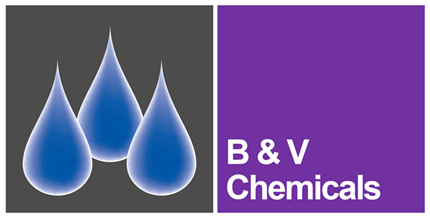Transitioning from traditional treatment to Film Forming Amines (FFAs) in steam boilers requires careful planning and execution to ensure a smooth transition.
Things to consider in order to minimise the risk of complications and ensure the effectiveness of the new treatment are outlined below:
- Understanding the action of FFA’s: Recognise that FFAs have a high affinity for metal surfaces, allowing them to penetrate existing deposits within the system. Systems previously treated with sulphite will have a thick magnetite layer on metal surfaces, which will gradually reduce when transitioning to FFAs.
- Initial iron levels: Expect an initial increase in iron levels when transitioning to FFAs due to the mechanisms of action. This is because the magnetite layer formed by FFAs is thinner compared to sulphite treatment, leading to increased heat transfer efficiency but also a gradual removal of the magnetite.
- Gradual introduction of FFAs: Start with a low dose of FFA treatment initially and gradually increase the dose rate over time. This gradual introduction helps remove deposits from the system slowly and manageably, minimising disruptions.
- Choosing the right time: Ideally, switch over to FFA treatment during a technical stop or shutdown. This allows for a general inspection of the boiler to be conducted, ensuring the absence of any previous treatment chemicals and providing an optimal environment for the transition.
- Ceasing current treatment: If transitioning during operation is unavoidable, cease dosing of the current treatment and allow residuals to fall to compatible levels before introducing FFAs. This ensures compatibility and prevents any adverse reactions between different treatment chemicals.
By following these steps and considering the unique characteristics of FFAs and the existing conditions of the steam boiler system, you can facilitate a smooth transition while minimising risks and ensuring the effectiveness of the new treatment.
During the transition period from traditional treatment to film forming amines (FFAs) in steam boilers, close monitoring of boiler water chemistry and system performance is crucial. Here are some key steps to follow:
- Daily testing: Perform regular daily testing of boiler water parameters, including pH, conductivity, and any other relevant parameters as per standard operating procedures. This helps in tracking changes and detecting any anomalies early on.
- Investigate unusual changes: Promptly investigate any unusual changes observed in the boiler water chemistry or system performance. This could include unexpected fluctuations in pH, conductivity, or any other parameters. Identifying and addressing issues early can prevent potential complications.
- Continuous monitoring: Maintain close monitoring of the system even after the transition period. It's essential to ensure that the system has stabilized and that the FFAs are effectively maintaining water chemistry within the desired range.
- Follow manufacturer's guidance: Adhere to any specific guidance provided by the manufacturer of the FFAs or any relevant industry standards. Manufacturers may provide recommendations or guidelines for monitoring and analysing water chemistry during the transition period.
- Guidance documents: Refer to any applicable guidance documents, industry standards, or best practices for boiler water treatment. These resources can provide additional insights and recommendations for monitoring and analysing water chemistry during the transition to FFAs.
By closely monitoring boiler water chemistry and system performance, promptly investigating any deviations, and following manufacturer's guidance and industry best practices, you can ensure a smooth transition to FFAs while maintaining the integrity and efficiency of the steam boiler system.
More detailed guidance on the switch over from traditional boiler treatments to FFA based formulations can be obtained from our technical department on ownlabel@bvwater.co.uk


.jpeg)


